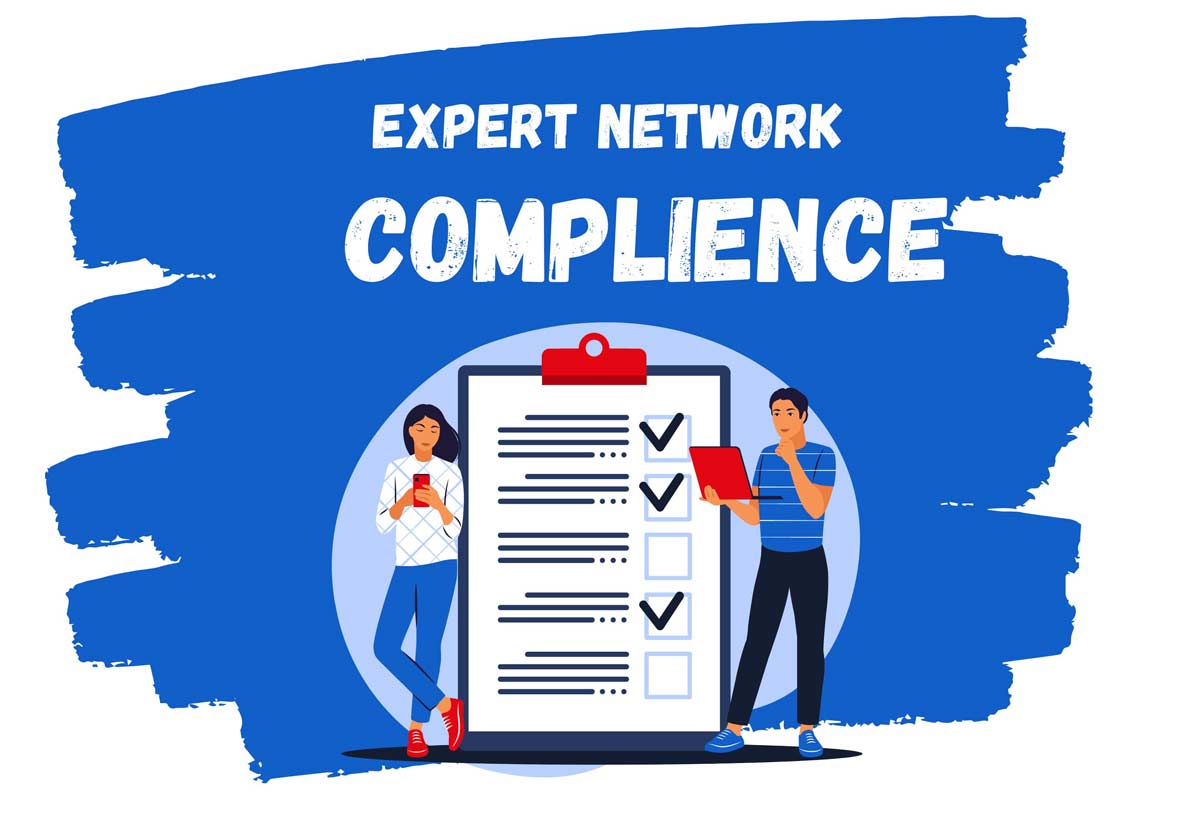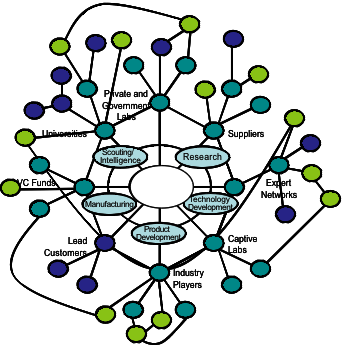What Is The Role Of Compliance In Expert Networks?
What is the role of compliance in expert networks? Let’s dive in and explore this fascinating topic together!
When it comes to expert networks, compliance plays a crucial role in ensuring ethical practices and maintaining the highest standards. So, what exactly is compliance? Well, think of it as a set of rules and regulations that experts, clients, and the network itself must follow.
Compliance serves as a safeguard, protecting the integrity of expert networks by preventing conflicts of interest, maintaining confidentiality, and ensuring experts provide accurate and reliable information. Ready to learn more about the important role compliance plays in expert networks? Let’s get started!

The Role of Compliance in Expert Networks: Ensuring Trust and Integrity
In today’s interconnected world, expert networks play a crucial role in facilitating knowledge sharing between professionals across various industries. These networks connect subject-matter experts with businesses seeking their insights and expertise. However, with the growing importance of compliance in the business landscape, it is essential to understand the role of compliance in expert networks.
Compliance refers to the adherence to legal, regulatory, and ethical standards. In the context of expert networks, compliance ensures that the platform operates within the boundaries of the law and maintains the highest standards of integrity. Compliance helps protect the interests of both experts and businesses, fostering a trustworthy and transparent environment for knowledge exchange.
Ensuring Data Privacy and Confidentiality
One of the primary roles of compliance in expert networks is to ensure data privacy and confidentiality. Expert networks often deal with sensitive information, including proprietary data, trade secrets, and intellectual property. Compliance measures, such as stringent data protection protocols and confidentiality agreements, help safeguard this valuable information.
By implementing robust data security measures, expert networks can assure their users that their data is protected from unauthorized access or breaches. Compliance also ensures that experts are aware of their obligations regarding client confidentiality. This fosters trust and encourages experts to share their knowledge and insights without fear of compromising sensitive information.
Screening and Vetting of Experts
Another critical aspect of compliance in expert networks is the screening and vetting of experts. Compliance measures help ensure that experts have the necessary qualifications, experience, and expertise in their respective fields. Thorough background checks, verification of credentials, and reference checks are essential steps in the vetting process.
Compliance also helps maintain the integrity of the expert network by preventing the inclusion of individuals with conflicts of interest or those who may have regulatory or legal issues. By thoroughly screening experts, compliance measures help ensure that the platform only hosts reputable professionals who can provide reliable and unbiased insights to businesses.
Facilitating Transparency and Disclosure
Compliance in expert networks also plays a vital role in promoting transparency and disclosure. Experts are required to disclose any potential conflicts of interest or biases that may influence their opinions or recommendations. Compliance measures ensure that these disclosures are made upfront, allowing businesses to make informed decisions based on accurate and unbiased information.
Transparency is also essential when it comes to the compensation of experts. Compliance ensures that all financial arrangements between experts and businesses are disclosed and transparent. This helps maintain trust and further solidifies the integrity of the expert network.
Conclusion
In conclusion, compliance is crucial to the functioning of expert networks. By ensuring data privacy and confidentiality, screening and vetting experts, and promoting transparency and disclosure, compliance measures create a trustworthy and secure environment for knowledge sharing. Compliance helps protect the interests of both experts and businesses, fostering a culture of integrity and high ethical standards within expert networks. By understanding the role of compliance, businesses can confidently leverage expert networks to gain valuable insights and expertise.
Key Takeaways: What is the role of compliance in expert networks?
- Compliance ensures that expert networks follow legal and ethical guidelines.
- Compliance helps maintain the integrity and reputation of expert networks.
- Compliance ensures that experts are adequately vetted and qualified.
- Compliance protects confidential information shared between experts and clients.
- Compliance plays a crucial role in preventing insider trading and other illegal activities.
Frequently Asked Questions
Welcome to our Frequently Asked Questions section, where we will explore the role of compliance in expert networks. We will cover key aspects of compliance and its importance in the context of expert networks. Read on to learn more!
1. How does compliance impact expert networks?
Compliance plays a vital role in expert networks. It ensures that these networks operate within the bounds of legal and ethical frameworks. Compliance measures help protect the integrity of the information provided by experts and the confidentiality of the clients seeking their advice.
Compliance also ensures that expert networks adhere to relevant industry regulations and guidelines. By doing so, these networks reduce the risk of any violations that might lead to reputational damage and legal consequences. Compliance serves as a safeguard, promoting transparency, accountability, and trust in the expert network industry.
2. What are some compliance requirements for expert networks?
Compliance requirements for expert networks typically include proper vetting and due diligence of experts. This process involves verifying their credentials, expertise, professional background, and potential conflicts of interest. Thorough screening helps ensure that experts have the necessary qualifications and ethical standards.
Additionally, expert networks must have robust internal compliance policies and procedures in place. These may cover topics such as data protection, confidentiality, insider trading, conflicts of interest, and anti-bribery measures. Regular audits and monitoring are essential to ensure compliance with these requirements.
3. How does compliance protect clients using expert networks?
Compliance measures provide a layer of protection for clients using expert networks. By enforcing stringent vetting processes, compliance helps minimize the risk of engaging with unqualified or unreliable experts. This ensures that clients receive accurate and reliable information to make informed decisions.
Furthermore, compliance safeguards client confidentiality. Expert networks must implement measures to protect sensitive information shared during consultations. Compliance requirements often include secure data handling protocols and non-disclosure agreements, assuring clients that their information remains confidential.
4. Who oversees compliance in expert networks?
Compliance in expert networks is typically overseen by internal compliance teams or dedicated compliance officers. Their role involves monitoring and enforcing compliance policies and procedures within the organization. They ensure that all aspects of compliance, such as vetting experts and maintaining data confidentiality, are diligently followed.
External regulatory bodies and industry associations may also play a role in overseeing compliance in expert networks. These entities may establish guidelines, standards, and codes of conduct that expert networks must adhere to. Compliance with these external regulations helps maintain industry integrity and fosters trust among clients and experts.
5. Why is compliance essential for the long-term success of expert networks?
Compliance is vital for the long-term success of expert networks for several reasons. Firstly, it enables networks to establish a reputation for trustworthiness and reliability. Clients are more likely to engage with expert networks that demonstrate strong compliance measures, ensuring the information they receive is accurate and ethically sourced.
Secondly, compliance mitigates legal and reputational risks. By adhering to relevant regulations, expert networks minimize the chances of facing legal sanctions or damage to their reputation due to non-compliant behavior. This fosters a positive image and instills confidence among clients, experts, and stakeholders in the network.
What is Compliance and Why Is It Important?
Summary
Compliance is an important part of expert networks because it ensures that everything is done legally and ethically. Compliance means following the rules and laws that govern how information is shared and used. It helps protect everyone involved and ensures that the information exchanged is accurate and reliable.
By having strong compliance measures in place, expert networks can build trust with their clients and experts. Compliance also helps to prevent any conflicts of interest and maintains confidentiality. It’s important for expert networks to prioritize compliance to ensure a smooth and ethical operation.


